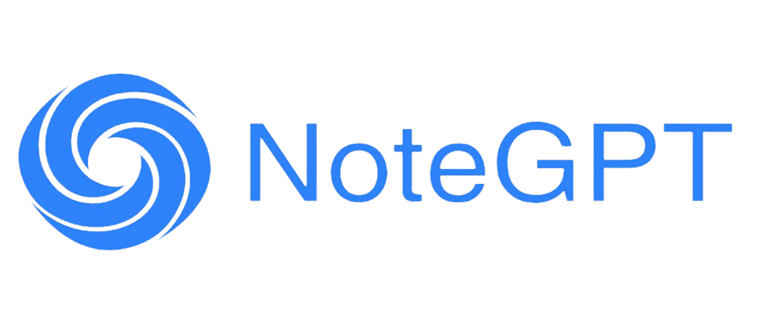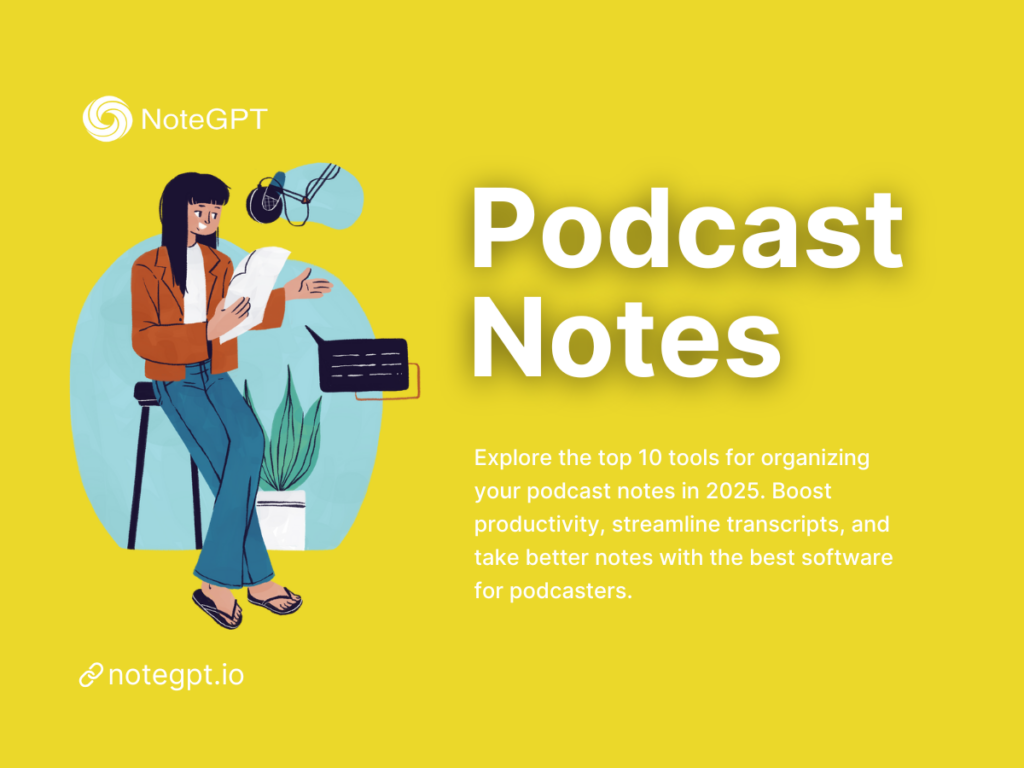Let’s be real—keeping your podcast notes organized can sometimes feel like herding cats. Long episodes, scattered ideas, messy transcripts… it’s easy to get lost in the chaos. But here’s the good news: 2025 is the year of smarter podcasting. Thanks to tools like the AI Podcast Generator, you can now turn your jumbled notes into polished audio without breaking a sweat. Ready to tame your podcast notes and save hours? Let’s dive into the best tools to keep your show on track and your sanity intact.
Why Organizing Podcast Notes Matters More Than Ever
Podcasting isn’t just about hitting “record” anymore—it’s about planning, scripting, researching, reviewing transcripts, and making sense of hours of audio content. Whether you're running a solo podcast, collaborating with a team, or simply trying to absorb knowledge from your favorite shows, your podcast notes are the spine of your content workflow.
In 2025, the volume of content has skyrocketed, and so has the need for smart, searchable, shareable note-taking for podcasts. Poorly organized notes can lead to miscommunication, lost ideas, and duplicated effort. Meanwhile, having structured, searchable podcast transcripts, highlights, and ideas at your fingertips can transform your entire production process.
In short: If you're serious about podcasting, you need to be serious about your podcast notes.
What to Look for in a Podcast Note-Taking Tool
Not all podcast note-taking software is created equal. Some tools are built for rapid idea capture. Others shine at organizing long-form content or tagging key moments. As a podcaster, you'll want tools that support the entire note lifecycle—from live transcription to searchable archives to collaborative editing.
Here’s what to look for in a top-tier podcast note tool in 2025:
- Transcription support (AI-powered or manual input)
- Speaker identification and tagging
- Searchable interface with highlights or timestamp linking
- Cloud sync for access across devices
- Export options (PDF, Markdown, text, or audio)
- Integration with your existing workflow (Notion, Google Docs, etc.)
- Bonus: Some tools now go further—letting you turn notes into audio or even finished podcast episodes
Let’s dive into the best tools to organize your podcast notes this year, starting with a surprisingly powerful all-in-one.
Top 10 Tools to Organize Podcast Notes in 2025
1. NoteGPT – Create Podcasts from Notes or PDF Scripts
Best for: Turning structured notes or research PDFs into complete podcast scripts and audio Pricing: Free, no sign-up required Standout Feature: AI-powered podcast generator from PDFs or notes
NoteGPT isn’t your typical note-taking tool—it’s built for creators who don’t just want to take notes, but actually want to turn them into something. With its AI Podcast Generator, NoteGPT lets you upload PDF research papers, show outlines, or even rough brainstorming notes, and transforms them into editable podcast scripts complete with customizable AI voices.
Here’s how it works:
- Upload your notes or script (PDF, text, or Markdown)
- Choose a podcast style (educational, interview, news, personal growth, etc.)
- Pick a host voice or clone your own
- Let NoteGPT generate a full podcast-ready audio file
This makes it more than just a tool to organize podcast notes—it’s an end-to-end production shortcut. Plus, it includes time-stamped highlighting, role differentiation, and long-audio support (up to 300MB per file), making it great for research-heavy podcasts or scripted storytelling.
Why we love it: Not only does NoteGPT keep your notes organized, but it lets you skip the mic if you want—ideal for shy creators, educators, or anyone short on studio time. You can brainstorm in bullet points and publish in audio.
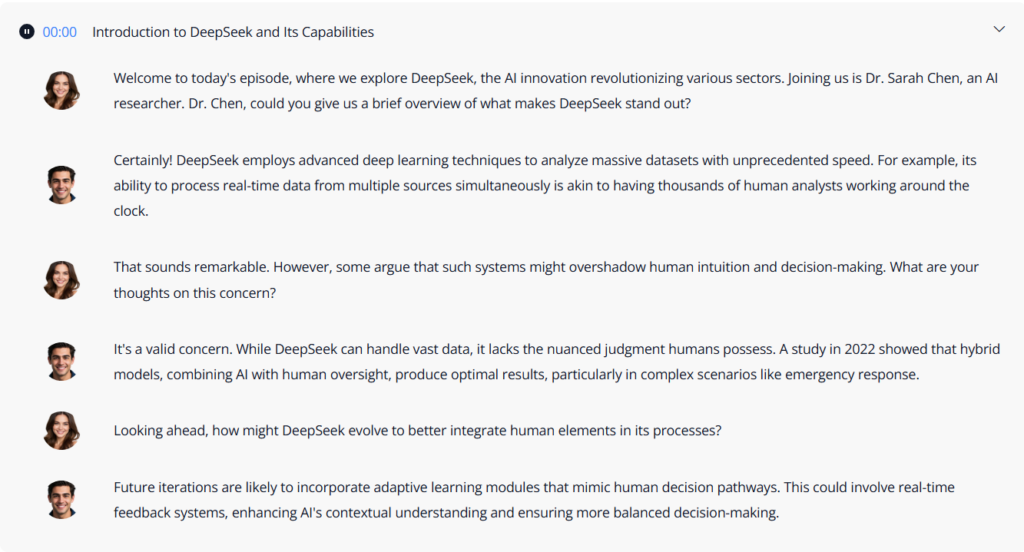
2. Notion – Flexible Note Database for Podcast Creators
Best for: Visual organization and custom workflows Pricing: Free for personal use; $8/month for teams Standout Feature: Customizable templates and relational databases
Notion is the Swiss Army knife of digital organization. It’s beloved by podcast creators who want to manage everything—episode outlines, guest bios, research docs, and show notes—in one place.
With Notion, you can create linked databases to keep your podcast notes in sync with your production calendar. Use tags for episode status (planning, recording, editing), embed audio files, and collaborate with your team in real time.
Pro tip: Combine Notion with tools like Tactiq or Otter.ai to import transcripts, and use linked properties to connect show notes with raw interviews.
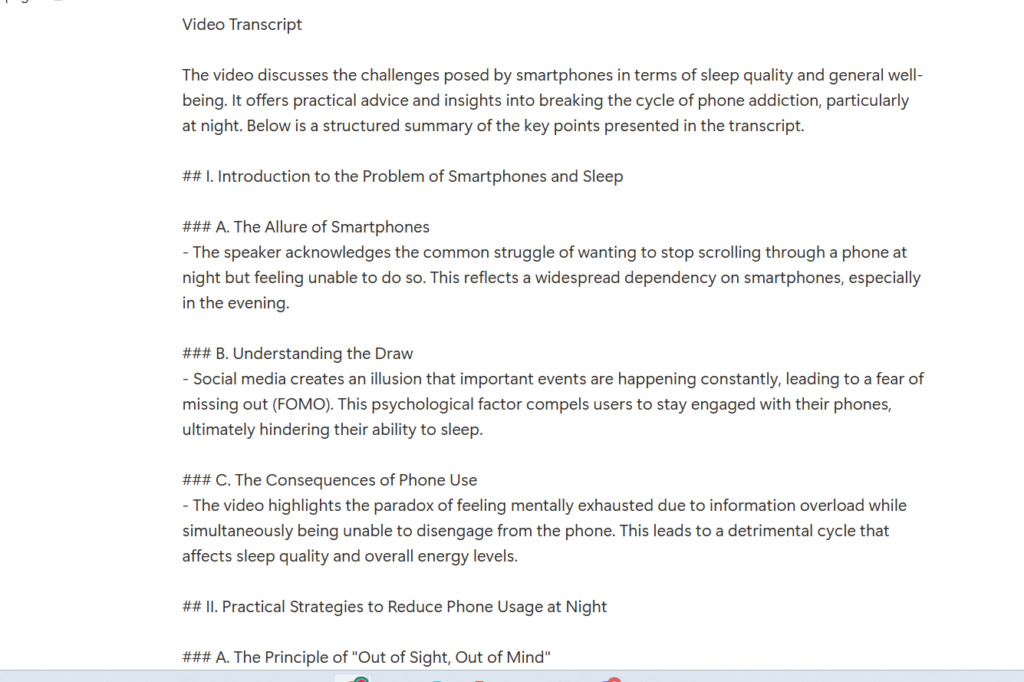
3. Evernote – Classic Tool for Structured Podcast Research
Best for: Clipping content and long-form research Pricing: Free with basic features; Premium from $7.99/month Standout Feature: Web clipper + advanced search
Evernote remains a solid choice for creators who do a lot of research. Its powerful tagging system and notebook structure are perfect for organizing podcast research notes. With the Web Clipper extension, you can save articles, interview ideas, and reference material directly into your Evernote library.
It also supports handwriting input, audio notes, and scanned documents—making it especially handy for analog thinkers transitioning into the digital world.
While it lacks transcription features, it shines as a podcast planning companion.
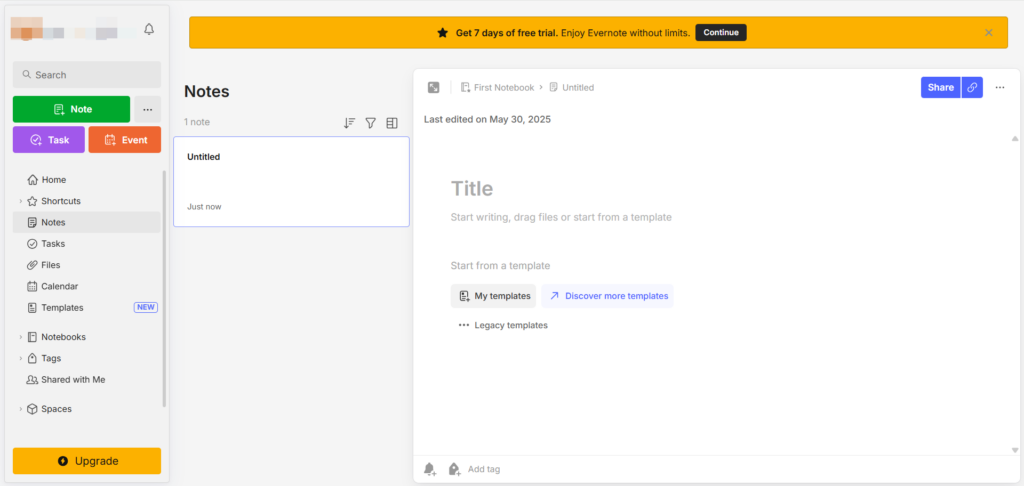
4. Obsidian – For Deep Linking and Long-Term Knowledge Management
Best for: Building a personal podcast knowledge graph Pricing: Free; add-ons available Standout Feature: Markdown-based note linking and local storage
If you’re a heavy thinker or someone who likes to connect ideas across episodes, Obsidian is your best friend. Built on plain Markdown files, Obsidian offers backlinking, graph view, and custom plugins that make it perfect for thematic podcasts or long-form storytelling.
You can tag segments, cross-link ideas from past episodes, and create a growing vault of insights. While it’s not built for live audio or transcription, Obsidian turns your podcast library into an interconnected brain.
SEO tip: People often search “how to take smart podcast notes”—Obsidian fits that bill.
5. Tactiq – Real-Time Meeting Notes from Zoom or Google Meet
Best for: Live podcast interviews and meeting-style recordings Pricing: Free plan available; Pro from $10/month Standout Feature: Auto-capture from Zoom, Google Meet, MS Teams
Tactiq acts like your assistant during live podcast sessions. It captures transcripts in real time from your video calls and allows you to highlight key moments, assign speakers, and export notes into Notion or Google Docs.
If you host remote interviews, Tactiq lets you focus on the conversation while it does the heavy lifting in the background. After recording, you can quickly tag answers, extract quotes, and turn transcripts into show notes or scripts.
This tool is a game changer for podcasters who rely on interviews and need real-time voice transcription with a notes-first approach.
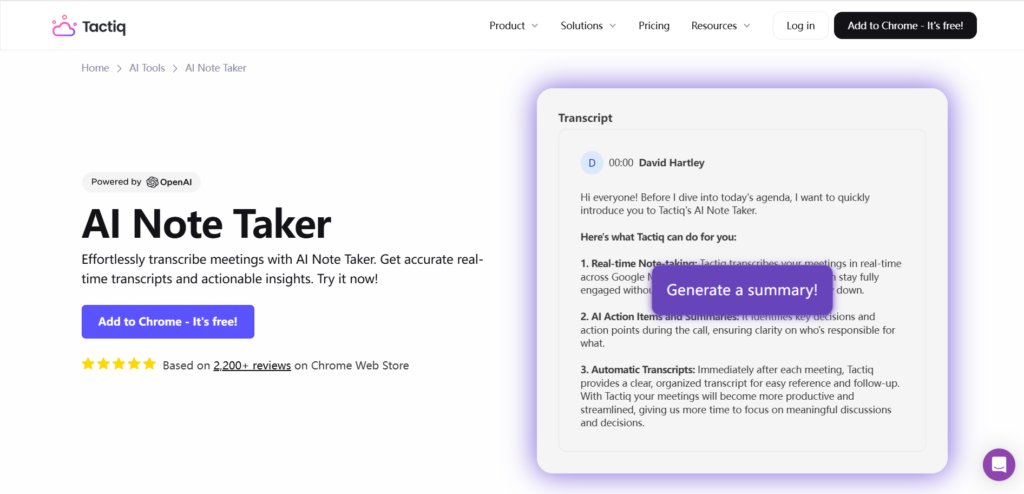
6. Airr – Highlight and Share Podcast Moments with Notes
Airr is designed specifically for podcast listeners who want to capture and organize their favorite moments. With Airr, you can create podcast notes by clipping short audio highlights and adding personal annotations. This makes it ideal for podcasters who consume other shows for research or inspiration and want to build a well-organized collection of insights.
The app also supports exporting clips and notes, making it easy to integrate with your broader podcast note-taking workflow. While Airr doesn’t generate full transcripts, it excels at helping you pinpoint and organize key moments from multiple episodes.
For podcasters looking to deepen their engagement with existing content, Airr offers a fresh approach to podcast notes organization.
7. Audiopen – Turn Voice Memos into Organized Summaries
If you prefer capturing ideas verbally, Audiopen converts your voice memos into structured, searchable notes. This makes it a valuable tool for podcasters who brainstorm on the go or want to capture spontaneous thoughts.
Audiopen’s AI transcription is accurate and includes timestamps, allowing you to review and organize your podcast notes with ease. You can export summaries or full transcripts for later editing or scripting, supporting a seamless workflow from raw ideas to polished episodes.
Its simplicity and focus on voice input set Audiopen apart as a practical note-taking tool for busy podcasters.
8. Snipd – Smart AI Podcast Player with Note-Taking Built In
Snipd combines podcast playback with AI-powered note-taking, allowing users to create searchable transcripts and highlights while listening. This all-in-one approach helps podcasters research content, capture ideas, and keep their podcast notes connected directly to the audio timeline.
With smart tagging and export capabilities, Snipd turns passive listening into active content creation. It’s especially useful for those who want to merge their note organization with audio review seamlessly.
For podcasters who juggle multiple shows and need efficient note organization tools, Snipd delivers a clever blend of listening and note-taking.
9. Reflect Notes – Lightweight PKM for Podcast Insights
Reflect Notes is a lightweight personal knowledge management app designed for fast note capture and organization. Its minimalist interface helps podcasters jot down ideas, episode outlines, or research findings without distraction.
Reflect supports backlinks and tagging, helping users build a connected web of podcast notes over time. While it doesn’t include transcription, its focus on clarity and ease of use makes it an excellent companion for podcast creators wanting a distraction-free note hub.
For podcasters who value speed and simplicity in organizing their notes, Reflect Notes is a strong contender.
10. Otter.ai – Best for Automated Transcription and Speaker Detection
Otter.ai remains a leader in automated speech-to-text transcription for podcasters. Its AI-powered service transcribes interviews, panel discussions, and solo recordings with impressive accuracy, including speaker identification and time stamps.
This tool excels at transforming raw audio into editable transcripts, making it easier than ever to generate structured podcast notes directly from recordings. Otter.ai also supports collaboration, letting teams highlight, comment, and share transcripts in real time.
For podcasters prioritizing fast, reliable transcription as the foundation of their note organization, Otter.ai is an indispensable tool.
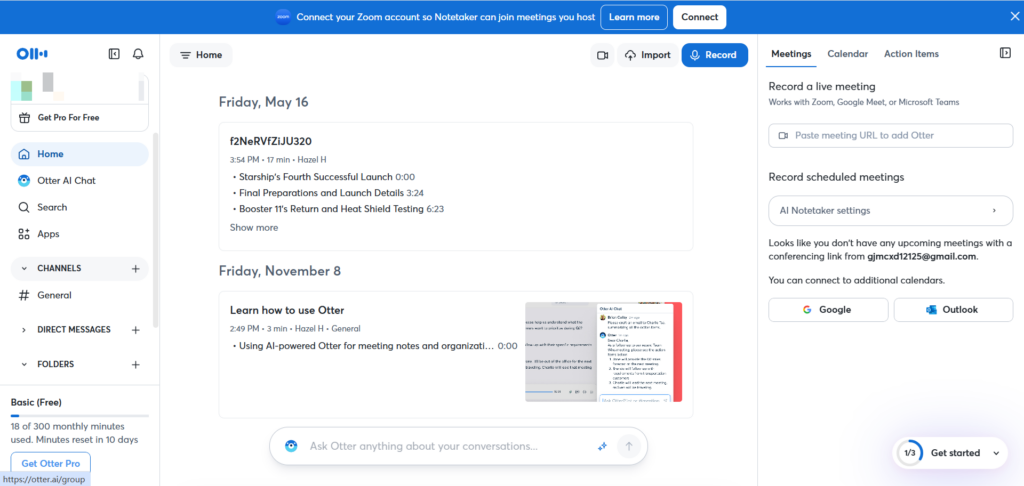
Bonus: How to Turn Podcast Notes into Audio Automatically
After organizing your podcast notes with the tools above, why stop there? The next evolution is transforming those notes into publish-ready audio effortlessly.
Tools like NoteGPT’s AI Podcast Generator are changing the game by converting structured notes or PDF scripts directly into lifelike podcast episodes. This technology leverages advanced text-to-speech engines with customizable voices and styles—whether you want an interview vibe, storytelling tone, or educational format.
By integrating note organization and audio generation, podcasters save hours in scripting, recording, and editing. It also opens new doors for accessibility and repurposing content across platforms.
If your goal is to streamline your workflow from raw research and notes to a polished podcast episode, exploring AI-powered audio generation tools is the future-proof strategy in 2025.
Conclusion
Organizing your podcast notes efficiently is no longer optional—it’s essential for producing high-quality, engaging episodes in a competitive market. The right tools can help you capture ideas, manage transcripts, collaborate with teams, and even transform notes into audio content.
From powerful transcription platforms like Otter.ai to versatile databases like Notion, and innovative AI solutions like NoteGPT AI Podcast Generator, podcasters today have unprecedented options to optimize their workflow.
Choose the tools that fit your style and needs, and remember: well-organized notes are the foundation of every successful podcast.
